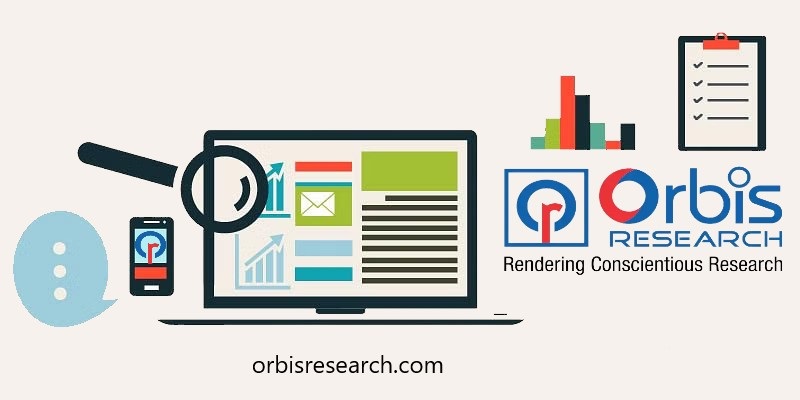Effective digital marketing strategies for IT companies are the linchpin for startup triumph in the dynamic landscape of Information Technology (IT) services, where innovation is the heartbeat of success. In an era dominated by online presence and connectivity, lead generation expertise stands as the catalyst for sustainable growth. As per the most recent CMO Survey, 56% of companies adjust their business models to leverage digital prospects.
This blog delves into the intricate realm of Digital Marketing Strategies to grow your business, offering invaluable insights and digital lead generation strategies to propel nascent ventures toward prominence.
In an age where every click, like, and share holds the potential to transform an idea into a formidable enterprise, the importance of well-crafted internet marketing strategies cannot be overstated. Knowing the ins and outs of lead generation becomes critical for IT companies navigating the competitive ecosystem. This in-depth manual seeks to simplify the complex world of digital marketing by offering practical guidance on utilizing SEO, social media, and content marketing to build a strong online presence. Come along on this insightful trip where innovation and smart marketing unite to redefine the future with lead generation strategies.
What Is Lead Generation?

Lead generation is attracting and converting potential customers into leads—the individuals who show interest in the product or service. This process of online business marketing starts with strategically initiating consumer interest via various marketing channels and gathering their contact data for further engagement.
For example, a tech startup offering different branding solutions can create a guide on the “Dos and don’ts of startup branding.” Interested parties will provide their email addresses to access the guide, and it transforms them from casual browsers to potential leads. This approach expands the customer base and presents a pool of prospects more likely to convert into final customers.
Using both inbound and outbound lead generation strategies, this approach aims to generate interest in a brand and its offerings. Your audience must be drawn in.
The digital marketing strategies for IT startups that promote your company when potential clients are looking for products similar to your offer are known as inbound marketing. In essence, you’re increasing your visibility and discoverability to them. Content marketing and SEO are examples of this. Within five months, inbound marketing initiatives can reduce lead costs by 80%.
Using media like TV, radio, offline hoardings, and paid advertising campaigns, outbound marketing reaches consumers while they aren’t actively looking for your company. This is a less subtle and more direct way to grab someone’s interest. According to 68% of marketers, their sales force receives the highest caliber leads through lead generation strategies.
Understanding the Digital Landscape for IT Startups
IT entrepreneurs have to negotiate a challenging terrain in the constantly changing digital ecosystem to establish a presence in the market. Developing methods that work with the target audience requires a comprehensive understanding of the digital space.
The increasing number of interactions that take place online requires startups to have a strong online presence. As of October 2023, 65.7% of people were online, according to Statista. Understanding the subtleties of user behavior is crucial for startups, as customers increasingly use online platforms for information gathering, product research, and decision-making.
Key trends shape the IT service market, such as the accelerating shift to cloud computing and the rising importance of cybersecurity. Forbes reports that the global cloud computing market is projected to reach $600 billion by 2023, emphasizing the significance of cloud-based solutions. Simultaneously, the increasing frequency of cyber threats underscores the demand for robust cybersecurity services, positioning startups in this niche for substantial growth.
It’s critical to comprehend how digital marketing contributes to startup success. A McKinsey survey indicates that businesses that use digital marketing channels see revenue growth rates that are 2.8 times greater than those that don’t. This demonstrates how a carefully thought-out digital marketing plan can make all the difference for companies looking to build brand awareness and reputation in the digital age.
Crafting an Effective Digital Marketing Strategy
It is surprising to see how branding is important for app growth. In the intricate digital marketing realm, the foundation upon which successful campaigns are built is the foundation upon which successful campaigns are built. This section explores the crucial elements of a brand definition, audience identification, and the transformative power of data-driven decision-making.

Building the Foundation: Defining Your Brand
Crafting a story that connects with your target audience is just as important to defining your brand as designing a logo or tagline. Startups need to express their own value proposition and brand identity. A Nielsen study found that 59% of customers would rather purchase goods from companies they are familiar with, demonstrating the influence of brand familiarity on consumer decision-making. Maintaining a consistent message across digital platforms promotes credibility and trust for mobile apps branding.
Identifying Target Audiences and Personas
Knowing your target is essential to focusing your marketing efforts. Conduct in-depth research to determine your target market’s preferences, pain points, and demographics. By developing buyer personas, entrepreneurs can tailor their approach and give data a human touch. According to HubSpot research, personalized calls-to-action (CTAs) outperform generic ones by 202%. By focusing their content and online marketing strategy on target audiences, startups may increase user engagement and conversion rates.
The Power of Data-Driven Decision Making
The foundation of any successful online marketing strategy is data. Using analytics tools yields insightful information about market trends, campaign performance, and user behavior. According to a Forrester study, businesses that adopt data-driven decision-making are expected to see yearly growth rates of 30%. Startups should use data to improve marketing, hone tactics, and distribute resources effectively. Ongoing evaluation guarantees flexibility in a changing digital environment, promoting long-term prosperity.
Social Media Mastery for IT Startups
In the dynamic realm of digital marketing, no one can deny how social media has transformed the economy over the years. Social media is a powerful catalyst for IT startups to establish their brand, engage with their audience, and drive lead generation. Globally, there were more than 4.59 billion social media users in 2022; by 2027, that figure is expected to rise to nearly 6 billion.

Leveraging Platforms: Facebook, Twitter, LinkedIn, and Beyond
Social media channels offer startups numerous avenues to engage with their intended audience. With its large user base, Facebook offers a platform for creating communities and interesting content, and Twitter’s real-time nature helps firms remain ahead of industry discussions. With its emphasis on business, LinkedIn develops as a central location for thought leadership and business-to-business networking. Notwithstanding these behemoths, the best social media apps and platforms are equally important since they can provide focused interaction within particular communities.
Creating Engaging Content for Social Media
Content is one of the most important key social media marketing strategies for companies. Understanding the audience’s needs, goals, and preferences is essential to creating content that appeals to them. Videos and infographics are examples of visual content that frequently receives more engagement. Sharing insightful analysis, business news, and intimate behind-the-scenes looks regularly humanizes the company and builds rapport.
Utilizing Social Media Advertising for Lead Generation
For IT businesses looking to generate leads, paid social media advertising is a powerful tool. Thanks to the advanced targeting possibilities provided by social media platforms like Facebook and LinkedIn, entrepreneurs can target particular demographics, job titles, or interests. Startups can draw in viewers and influence desired actions by creating visually appealing ads and copy. This explains the importance and role of social media in lead generation for IT service companies.
ALSO READ: 20 Social Media Marketing Strategies To Promote Your App in 2023
Content Marketing Strategies
Content marketing stands as a linchpin in the digital success story of IT startups, providing a conduit to engage audiences and establish industry authority. According to the Content Marketing Institute, 73% of B2B and 70% of B2C marketers include content marketing in their digital marketing strategies for startups.
This section delves into key lead generation techniques of content marketing that resonate in the digital sphere, driving organic growth and lead generation.

The SEO Advantage: Optimizing Content for Search Engines
Search Engine Optimization (SEO) remains the cornerstone of content visibility. Improved discoverability by creating material that compiles with search algorithms. In-depth keyword research is essential for startups, and they must easily include pertinent terms in their content. Updating content frequently to conform to search engine algorithms guarantees content visibility in search results over time, increasing the number of potential customers who can access IT startup information. This is a common practice followed by all the top SEO agencies.
Blogging for Authority and Visibility
Maintaining a dynamic blog is a potent strategy for building authority and visibility in the IT sector. Regular, high-quality blog posts not only keep the audience informed but also contribute to improved search rankings. By addressing problems in the industry, providing answers, and sharing insights, interesting content positions digital marketing companies as thought leaders and builds reader trust. Infographics and multimedia are examples of interactive components that improve the reading experience.
Ebooks, Whitepapers, and Webinars: Content Variety for Startup Lead Generation
Diversifying content formats is crucial for capturing a broader audience and nurturing leads. Whitepapers and ebooks that provide in-depth analysis and solutions position the startup as a reliable resource in the field.
When consumers download these materials, they become useful assets that turn visitors into leads by requesting contact information. A dynamic element is added to content marketing through webinars. Live interactions, expert discussions, and audience engagement foster a sense of community mixed with lead generation marketing strategies.
ALSO READ: Using Behavioral Science for Mobile Marketing Excellence | Strategic Insights
Search Engine Optimization (SEO) Tactics
Effective lead generation tips for IT companies are crucial for IT service companies looking to improve their online presence and produce quality leads in the ever-changing world of digital marketing. A well-designed SEO strategy raises a startup’s visibility and reputation considerably in addition to helping it rank higher in search results. The following are several thorough paragraphs that highlight important lead generation tips for IT companies specific to IT service startups:

Keyword Research and Targeting
Extensive keyword research is one of the core tenets of SEO for IT service startups. Knowing prospective customers’ words and phrases is important while looking for IT services. Use resources like Google Keyword Planner and industry-specific keyword research tools to find high-volume and relevant keywords. Use these keywords judiciously to indicate to search engines that your services are relevant by including them in meta tags, content, and other on-page components of your website.
Optimized Website Structure and Content
A well-structured website is both user- and search-engine-friendly. Ensure the information regarding your IT services is clear and concise and that your website is simple. Produce interesting, high-quality material that speaks to your intended audience’s problems. Use whitepapers, case studies, and blog entries to demonstrate your knowledge. Incorporate targeted keywords naturally into your content, and use the best seo tools for auditing and monitoring a website, considering the importance of providing value to your audience.
Mobile Optimization
Making your website mobile-friendly is now essential as we know why is mobile marketing important for app’s success. Mobile optimization is essential to any SEO plan because Google prefers mobile-friendly websites in its search results. Ensure your website works well on mobile devices, loads quickly, and offers a consistent user experience across various screen sizes.
Local SEO
Several businesses want to learn how to advertise your business on google maps. Local SEO is essential for IT service startups looking to service local markets. You can ensure that your Google My Business profile is accurate and comprehensive by including your company’s address, phone number, and working hours. Encourage satisfied clients to leave positive reviews online. This will not only improve your local presence but also build your reputation among potential customers who are looking for local IT services.
Link Building
For SEO to be successful, a strong backlink profile must be developed. Concentrate on obtaining backlinks of the highest caliber from reliable IT sector sites. Acquiring authoritative backlinks can be facilitated by engaging in industry forums, guest blogging on relevant blogs, and working with influencers. Links from trustworthy websites that complement your IT services should be given priority because quality counts more than quantity.
Technical SEO
Technical SEO entails optimizing your website’s backend to enhance performance and increase search engine visibility. Ensure your website is secure by using HTTPS, speeding up the page, and correcting crawl issues. To make indexing easier, submit a sitemap to search engines. Keep an eye on and update the technical parts of your website often to avoid any potential problems.
Social Media Integration
Search engine algorithms are starting to give more weight to signals from social media. Encourage social media sharing of your content by integrating your social media accounts with your website. Connect with your audience on social media sites like Facebook, Twitter, and LinkedIn by offering updates, industry insights, and demonstrations of your IT prowess. Learning how to market your mobile app on social media is beneficial for SEO, but it’s also an effective way in the startup lead generation campaign.
Analytics and Continuous Improvement
Using analytics software, like Google Analytics, is crucial to monitor the effectiveness of your SEO campaigns. Monitor important indicators such as conversion rates, bounce rates, and organic traffic. Review the data to find improvement areas and modify your action plan accordingly. Sustaining success in SEO requires constant attention to changes in search engine algorithms and industry trends. SEO is an ongoing activity.
ALSO READ: What is App Store Optimization and How it Boost App Ranking in 2023?
Paid Advertising Strategies
Paid advertising is a powerful component, other than the 7Ps of digital marketing, enabling businesses to reach their target audience quickly and efficiently. Let us describe different paid advertising tactics that companies can use to achieve meaningful and successful outcomes:

Search Engine Advertising (Pay-Per-Click – PPC)
PPC advertising for IT companies on search engines is one of the most popular forms of paid advertising, and Google Ads is the main platform for this type of advertising. Advertisers are shown at the top of search engine results pages and bid on keywords related to their goods or services. Every time a user clicks on the advertisement, the advertiser is charged. This tactic works well for finding people actively looking for particular goods or services, so your advertisement will be seen by those who are extremely relevant to it.
Social Media Advertising
Social media platforms with various advertising choices include Facebook, Instagram, Twitter, and LinkedIn. With these platforms, companies may target particular demographics, hobbies, and lifestyles, enabling them to create highly targeted advertisements. Businesses may raise brand awareness and engagement using aesthetically pleasing creatives and persuasive ad copy. There are several ways to employ digital marketing strategies for IT company, such as sponsored content, carousel ads, picture ads, and video commercials.
Display Advertising
Display advertising in the digital marketing strategies for IT company involves placing visual ads on third-party websites, apps, or social media platforms. These visual advertisements may appear as interactive multimedia, pop-up windows, or banners. One well-liked display advertising platform is Google Display Network. Companies might use targeted audiences, websites, or demographics to boost traffic and brand awareness. Display advertising must succeed by utilizing eye-catching imagery and succinct messaging.
Remarketing
Remarketing, or retargeting, involves showing ads to users who have previously visited your website or interacted with your brand but did not convert. Re-engaging potential clients and reminding them of your offerings is the goal of this method. Strong remarketing tools are available on platforms like Facebook and Google Ads, enabling companies to build unique audiences and target ads to individuals who have expressed interest in their products. Surprisingly, remarketing is counted in the list if 13 exceptional tools that help in mobile app marketing.
Affiliate Marketing
Affiliate marketing entails working with outside partners (affiliates) who promote your goods or services in return for a commission on sales or leads produced. It’s not your typical kind of paid advertising. Via the networks of affiliate marketers, this performance-based approach can assist in increasing the visibility of your goods and services at a reasonable price. Businesses today can check various top affiliate programs to understand the best approach.
Influencer Marketing
Leveraging influencers to promote products or services is a powerful paid advertising strategy, especially on social media platforms. Dedicated followers who rely on their advice are attracted to influencers. Companies that want to reach a certain audience might work with industry-relevant influencers. But it is important to learn if influencer marketing is right for your app, and selecting influencers whose ideals coincide with your brand and whose fan base corresponds with your intended audience is crucial.
Case Studies: Real-World Application of Digital Marketing Strategies For IT Companies

Within the dynamic realm of digital marketing, there are success stories from elite businesses that skillfully apply creative approaches to reach their objectives. These case studies provide insightful information on how to make your mobile app successful with digital marketing and act as useful benchmarks. This section delves into the tangible accomplishments of prominent industry figures, emphasizing certain tactics that have contributed to their rise to prominence.
Google’s Search Engine Advertising (PPC) Success
Google, the master of digital technology, is a prime example of the effectiveness of Pay-Per-Click (PPC) advertising. The business has deliberately used PPC through Google Ads to match visitors with pertinent goods and services. Google guarantees visibility to a large and highly focused audience by placing ads at the top of search results and bidding on keywords. This tactic not only advertises its goods but also helps millions of companies throughout the globe effectively reach potential clients with the best digital marketing strategies for IT company. Google’s PPC advertising is successful because it seamlessly integrates with user intent, offers helpful solutions, and propels ongoing innovation in digital advertising.
Nike’s Influencer Marketing Triumph
Nike, a pioneer in sportswear worldwide, has used influencer marketing to increase brand engagement by using athletes’ influence. Nike uses well-known sportsmen like Cristiano Ronaldo and Michael Jordan to promote its brand because of its enormous social media following and solid reputation. This tactic builds an emotional bond with customers while associating the company with elite athleticism. Nike’s global brand visibility is greatly enhanced by the authenticity and reach of these influencers, which makes Nike a shining example of how digital marketing strategies for IT company when done well, can propel a company to new heights in a cutthroat industry.
Future Trends in IT Service Startup Marketing
To maintain growth and relevance, IT service startups must keep ahead of emerging top mobile app marketing trends in the ever-changing world of digital marketing. In the upcoming years, several factors are expected to alter the marketing approaches of IT service startups drastically:

AI-Powered Personalization
Artificial intelligence (AI) to customize user experiences is revolutionary. IT firms will use artificial intelligence (AI) algorithms to evaluate user behavior, predict preferences, and provide highly customized content and services. Customization increases consumer happiness, engagement, and total brand loyalty.
Voice Search Optimization
It’s getting more and more important to optimize for voice search as virtual assistants and smart speakers proliferate. To satisfy natural language questions, IT service companies must modify their content and SEO strategies. They should concentrate on conversational and long-tail keywords to match how people interact with voice-activated devices.
Blockchain in Marketing
Blockchain technology’s built-in security and transparency will find uses in marketing, especially when protecting consumer data and verifying online transactions. IT companies can use blockchain technology to increase client trust by offering verifiable service delivery records and improving reporting and project management transparency.
Chatbots and Conversational Marketing
AI-powered chatbots will enable conversational marketing expected to become a mainstay of IT service startup tactics. Chatbots provide real-time, tailored interactions by responding to inquiries and helping consumers with their customer journey. This trend facilitates communication and enhances the customer experience, enabling companies to interact with leads more successfully. You can also search for the best AI chatbot apps for seamless conversations.
Navigating the Digital Horizon: Concluding Insights for IT Service Startups
The digital marketing strategies for IT services startups described here are critical for long-term growth and competitive advantage in the fast-paced world of digital marketing. Search Engine Optimization (SEO), paid advertising, and creative lead-generation strategies provide a powerful recipe for success as the digital world changes. While paid advertising expands a startup’s reach to certain consumers, SEO may be properly leveraged to improve online exposure and trust. Embracing innovative technology, video content, and influencer marketing ensures a dynamic and captivating brand presence by understanding the role of app marketing companies. Combining these strategies results in lead creation as well as long-lasting client relationships.
Staying abreast of new developments and continuously improving tactics in the rapidly changing digital landscape guarantees that IT service startups become not just industry leaders but also tough competitors in a market that is becoming more and more crowded.
- Why is SEO important for IT service startups?
- How can social media benefit IT service startups?
- What role does content play in effective lead generation?
- Why is personalization crucial in digital marketing for IT startups?
 Written By
Written By
Aparna Growth Strategist
Aparna is a growth specialist with handsful knowledge in business development. She values marketing as key a driver for sales, keeping up with the latest in the Mobile App industry. Her getting things done attitude makes her a magnet for the trickiest of tasks. In free times, which are few and far between, you can catch up with her at a game of Fussball.
https://www.mobileappdaily.com/knowledge-hub/digital-marketing-strategies-for-it-service-startups





